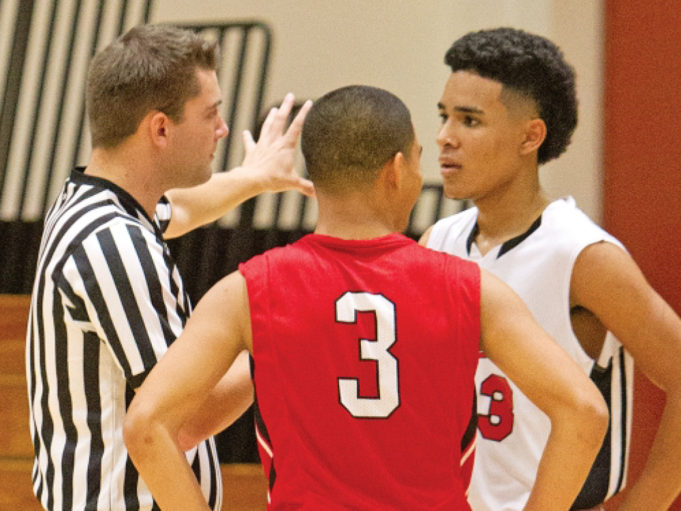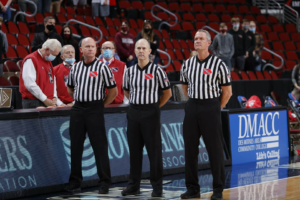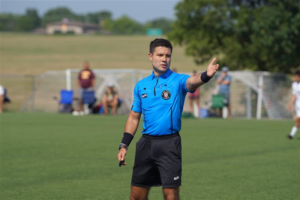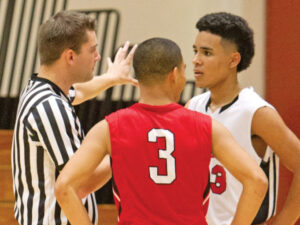
Youth sports are meant to build confidence, discipline, teamwork, and resilience. Yet one of the most harmful habits in today’s youth sports culture happens before the final whistle ever blows: adults complaining to referees. Whether it’s a parent yelling from the sidelines, a coach arguing a close call, or players mimicking the behavior they see, the message delivered to young athletes is clear—when something doesn’t go your way, blame someone else. This unhealthy pattern chips away at sportsmanship and undermines the lessons youth sports are supposed to teach.
The Real Influence Adults Have on Kids
Children learn far more from what we do than what we say. When kids see adults challenge, insult, or second-guess referees every time a call doesn’t go their way, they internalize a dangerous belief: authority is negotiable and accountability is optional.
This behavior shapes three major parts of a child’s development:
1. Accountability Disappears
Referees become the easy scapegoat for missed shots, poor execution, or lost games. Instead of asking, “What could I have done better?” kids learn to point fingers at the officials. This mindset slowly erodes their willingness to take responsibility, harming both athletic and personal growth.
2. Respect for Authority Weakens
Referees are essential for keeping games safe, fair, and structured. When adults publicly question their judgment—or worse, demean them—kids learn that respect is conditional. This carries beyond the field into school, friendships, and eventually the workplace.
3. Sportsmanship Declines
Sportsmanship isn’t just shaking hands after a game—it’s accepting outcomes with maturity, handling adversity, and playing with integrity. When complaining becomes the norm, the values of grace, humility, and self-control quickly fade.
These issues contribute to a growing crisis in youth sports: referee shortages. Many officials quit because of aggressive sideline behavior, making it harder for leagues to function.
Referees Are Human—And That’s the Point
Referees make mistakes. Every athlete, coach, and parent knows this. But mistakes are part of the game—and part of life. Teaching kids to respond to mistakes (their own or others’) with patience and maturity is one of the most valuable lessons youth sports can offer.
Instead of reacting with anger or blame, adults can frame officiating errors as learning moments:
- How do you stay focused when things don’t go your way?
- Can you control your response even when you disagree?
- What can you do personally to improve the next play?
These questions build resilience, adaptability, and emotional intelligence—skills far more valuable than any medal or trophy.
The Ripple Effect of Positive Behavior
When adults model calm, respectful behavior toward referees, the entire environment changes. Kids begin to understand that blame doesn’t solve problems, respect is non-negotiable, and emotions don’t control actions.
Here’s what improves:
A Healthier Game-Day Atmosphere
Players stay focused on the game, not the drama. Coaches coach. Parents support. Referees officiate without fear of being attacked.
Better Player Development
Kids learn to evaluate their performance honestly and grow from challenges instead of avoiding them.
Stronger Referee Retention
Officials who feel respected are more likely to stay in youth sports, improving the quality and stability of officiating.
Improved Team Culture
When accountability replaces excuses, effort and attitude become team priorities.
What Adults Can Do Right Now
Transforming the youth sports culture doesn’t require sweeping changes—it begins with small, intentional actions:
- Model respect by staying calm during tough calls.
- Avoid questioning referees publicly or emotionally.
- Encourage kids to focus on their effort, not officiating.
- Reinforce accountability by asking players what they can control.
- Redirect frustration into constructive feedback and positive communication.
- Praise sportsmanship just as much as athletic achievement.
These actions show kids that integrity matters more than winning, and character matters more than convenience.
Conclusion: Let the Game Teach What It’s Meant to Teach
Complaining to referees doesn’t help kids win—it teaches them the wrong lessons about responsibility, respect, and emotional control. Youth sports are at their best when they build strong, confident, and resilient young people. That only happens when adults set the tone.
Referees aren’t perfect, but they play an essential role in the development of young athletes. By treating them with respect, we teach kids to own their mistakes, control their emotions, and embrace the true spirit of sportsmanship.
In the end, the message we send should be simple:
Respect the officials. Respect the game. Respect yourself.












